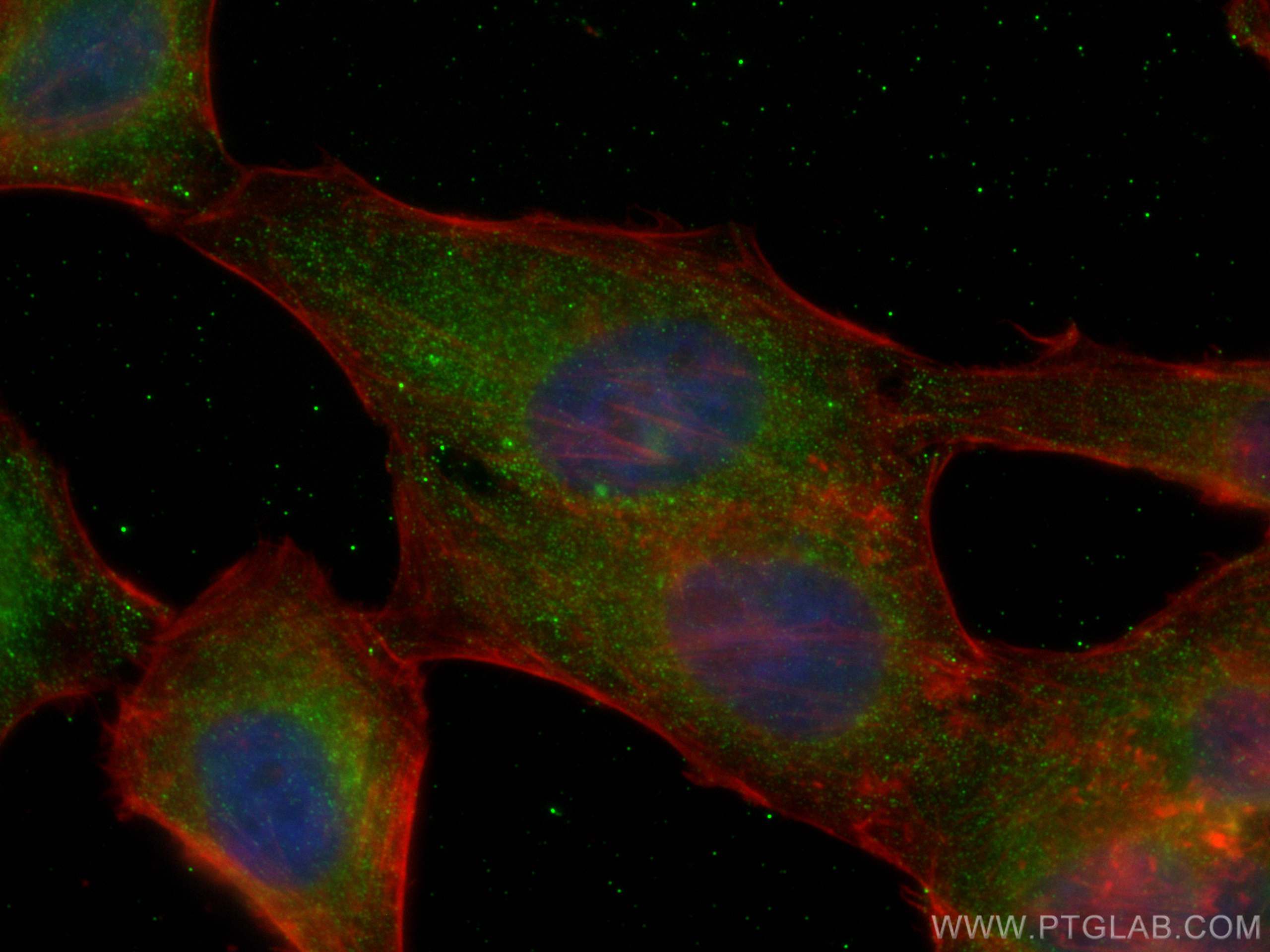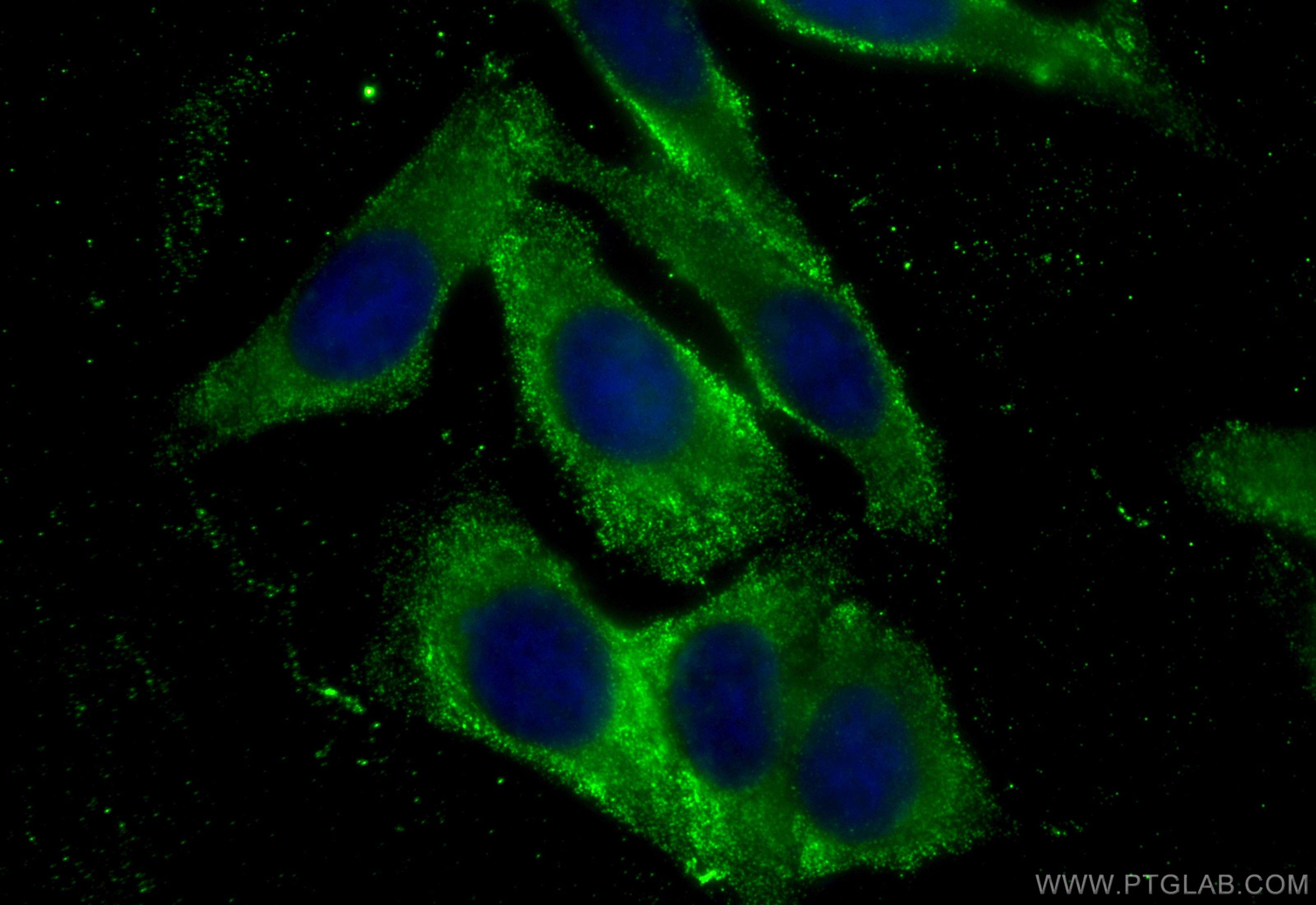Validation Data Gallery
Tested Applications
| Positive IF/ICC detected in | HepG2 cells |
Recommended dilution
| Application | Dilution |
|---|---|
| Immunofluorescence (IF)/ICC | IF/ICC : 1:50-1:500 |
| It is recommended that this reagent should be titrated in each testing system to obtain optimal results. | |
| Sample-dependent, Check data in validation data gallery. | |
Product Information
CL488-66364 targets D2HGDH in IF/ICC applications and shows reactivity with human, mouse, rat samples.
| Tested Reactivity | human, mouse, rat |
| Host / Isotype | Mouse / IgG1 |
| Class | Monoclonal |
| Type | Antibody |
| Immunogen | D2HGDH fusion protein Ag5036 相同性解析による交差性が予測される生物種 |
| Full Name | D-2-hydroxyglutarate dehydrogenase |
| Calculated molecular weight | 521 aa, 56 kDa |
| Observed molecular weight | 56 kDa |
| GenBank accession number | BC036604 |
| Gene Symbol | D2HGDH |
| Gene ID (NCBI) | 728294 |
| RRID | AB_3084238 |
| Conjugate | CoraLite® Plus 488 Fluorescent Dye |
| Excitation/Emission maxima wavelengths | 493 nm / 522 nm |
| Form | Liquid |
| Purification Method | Protein G purification |
| UNIPROT ID | Q8N465 |
| Storage Buffer | PBS with 50% glycerol, 0.05% Proclin300, 0.5% BSA , pH 7.3 |
| Storage Conditions | Store at -20°C. Avoid exposure to light. Stable for one year after shipment. Aliquoting is unnecessary for -20oC storage. |
Background Information
D2HGDH(D-2-hydroxyglutarate dehydrogenase, mitochondrial) is also named as D2HGD and belongs to the FAD-binding oxidoreductase/transferase type 4 family.It catalyzes the oxidation of D-2-hydroxyglutarate to alpha-ketoglutarate.Defects in D2HGDH are the cause of D-2-hydroxyglutaric aciduria type 1 (D2HGA1).
Protocols
| Product Specific Protocols | |
|---|---|
| IF protocol for CL Plus 488 D2HGDH antibody CL488-66364 | Download protocol |
| Standard Protocols | |
|---|---|
| Click here to view our Standard Protocols |

